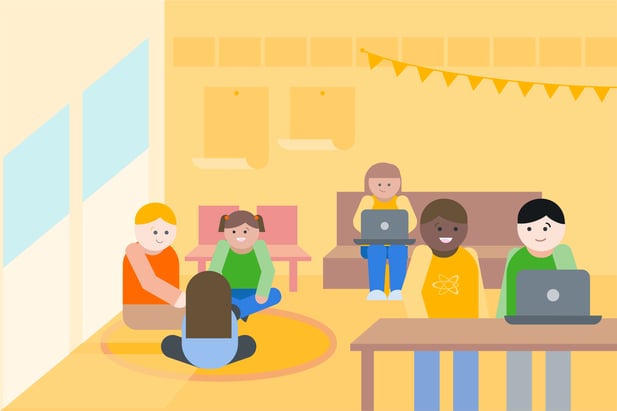
How to Teach Informative or Explanatory Writing
Three simple steps to help your students master informative or explanatory writing

Writing a clear and accurate informative text is a foundational skill in writing. People in all walks of life constantly need to write to explain ideas and information to others. These skills aren’t only important for success on state and college entrance assessments; they will also serve students well throughout their education, careers, and civic life. Here are three best practices to try with your students as you work with them on their informative writing skills.
1. Give students engaging, relevant texts. Students will be more successful when writing in response to a text on a topic that they care about and that is meaningful to them. Choose texts that are at an appropriate level of complexity for your students,that are on topics relevant to their lives and their concerns, and that are from reliable and respected sources, such as National Geographic, PBS, the Library of Congress, or NASA.
2. Have students prewrite and discuss. Planning is key! Give students a graphic organizer (such as ThinkCERCA’s interactive graphic organizer or the PDF organizer below) to help them plan a clear main idea statement about which they’ll be writing, and the most significant and relevant details they’ll include to support that idea. After working independently, pairs or small groups of students can share their plans and hear the questions and thoughts of their partners to activate the power of peer discourse.
3. Provide feedback and an opportunity to revise. With timely and specific feedback, students will grow and develop their writing skills. Point out both their strengths and opportunities to improve; for example, show them places where they could organize their information more effectively, add more relevant supporting details, or revise transitions to make the whole piece more cohesive.
To support your students in planning their piece of informative writing, check out our free graphic organizer that helps them plan their main idea and supporting details.

Claire has spent her career managing content creation of every possible sort, from print textbooks to marketing collateral to a travel blog. Having worked with major educational publishers and mobile companies, she brings project management and editorial expertise to her role at ThinkCERCA.
Claire has a degree in journalism from Northwestern University and a PMP certificate from the Project Management Institute.

